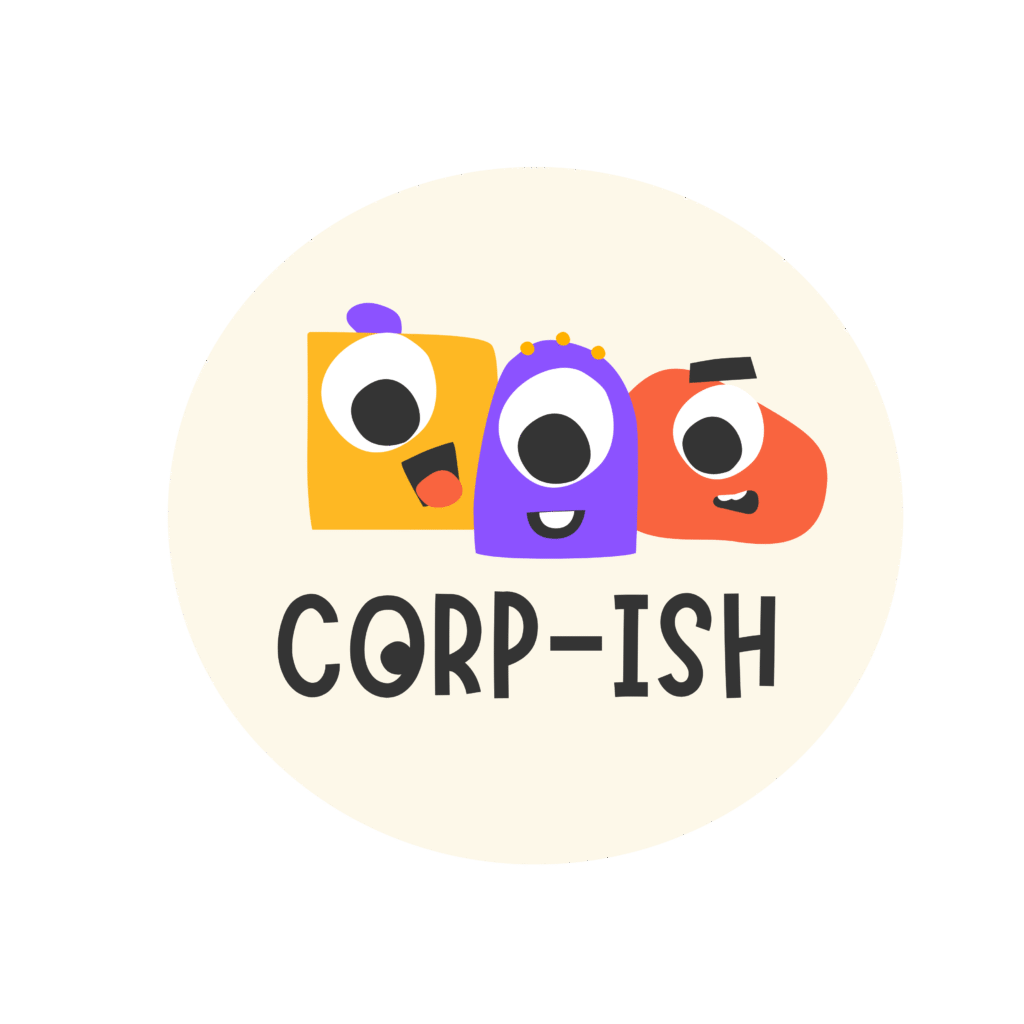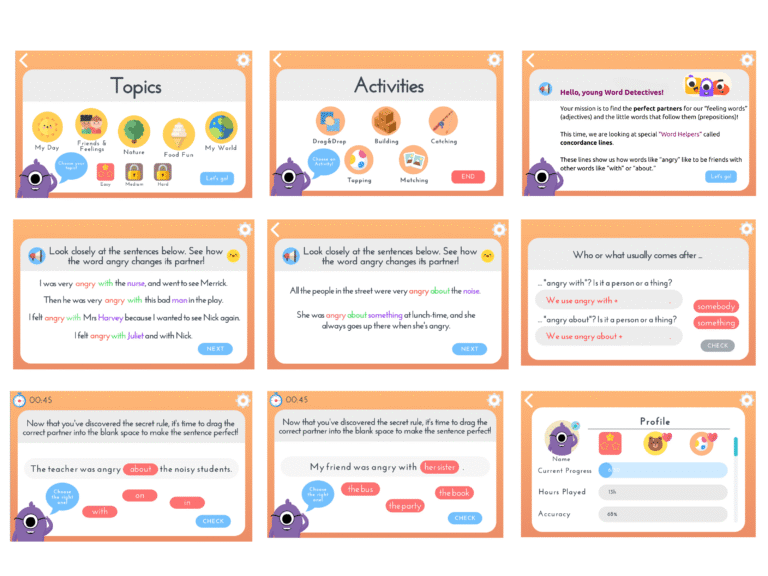Corpish

This page is dedicated to my funded PhD project that aims to explore corpus-informed teaching, i.e. Data Driven Learning (DDL), in primary school settings. The project takes a mobile, gamified teaching and learning approached to DDL for the targeted age group, 8-10 years. As part of this project I am developing a customized data-driven mobile learning application.
Below you can find some basic information about my project. As this is an ongoing project, I cannot yet share all procedures and data openly. Please contact me if you wish to learn more about my project.
Project Funding: This PhD project is funded by DAAD as part of Doctoral Research Grants. It is also supported by TU Chemnitz Project Acquisition Grant for game design and development.
Project Progress
Data Driven Learning (DDL) is a pedagogical approach which brings the tools of corpus linguistics into the learning process with the aim of:
- confronting “the learner as directly as possible with the data, and to make the learner a linguistic researcher” (Johns, 2002, p. 108)
- turning the learning process into a discovery process as it allows learners to:
- interact with corpora to notice patterns in use such as collocations, word frequency and more,
- make contextual deductions,
- formulate rules in an autonomous way.
Johns, Tim F. (2002). “Data-driven learning: The perpetual challenge.” Bernhard Kettemann and Georg Marko, eds. Teaching and Learning by Doing Corpus Analysis. Proceedings of the Fourth International Conference on Teaching and Language Corpora, Graz 19-24 July, 2000. Amsterdam: Rodopi, 107-117.
While DDL has shown promise in language education, due to the complexity of existing corpus tools, it is largely practiced in tertiary level since its use at lower levels and with young learners has produced fear (Boulton, 2009).
In light of these, my project aims to:
§ to make corpus use accessible for young learners who can read and write from the age of 8 to 10 by developing a young learner friendly
corpus application (design philosophy),
§ to explore what a multi-modal corpus application for young learners should ideally look like,
§ to evaluate the efficiency of DDL quantitatively and qualitatively and to find out whether, to what extent or how gamified DDL tasks help
young learners in the process of learning English
§ to assess whether DDL strategies can effectively be integrated into young learner ESL curriculum through the use of online multi-modal
corpus teaching resources.
My motivation in blending DDL with serious game design principles is as follows:
- With the help of authentic samples of language in an age and level appropriate corpus concordances, learners will have increased opportunities to “mimic linguistic and behavioural patterns” in a more natural effortless way as well as understand “the culture of the target language” (Ciornei & Dina, 2015, p.275).
- The interaction with the linguistic data will pave the way for increased attention to and decoding of meaning and patterns and for “mindful repetition in an engaging communicative context” (Ellis, 2002, p. 177).
- Gamified, mobile approach to DDL will provide a good alternative for DDL integration in young learner settings rendering the learning experience seamless, personal, portable and aligned with Generation Alpha learner profile and needs.
References:
Boulton, A. (2009). Data-driven learning: Reasonable fears and rational reassurance. Indian Journal of Applied Linguistics, 35(1), 81-106.
Ciornei S.& Dina, T. (2015) Authentic Texts in Teaching English. Procedia – Social and Behavioral Sciences 180: 274-279.
Crosthwaite, P. & Steeples, P. (2022): Data-driven learning with younger learners: exploring corpus-assisted development of the passive voice for science writing with female secondary school students, Computer Assisted Language Learning, online ahead of print. Author’s manuscript.
Gatto, M. (2019). Query complexity and query refinement: Using Web search from a corpus perspective with digital natives. In Crosthwaite, P. (Ed.). Data-Driven Learning for the Next Generation: Corpora and DDL for Pre-tertiary Learners (1st ed). Chapter 7.
Hirata, E. (2019). The development of a multimodal corpus tool for young EFL learners: A case study on the integration of DDL in teacher education. In Crosthwaite, P. (Ed.). Data-Driven Learning for the Next Generation: Corpora and DDL for Pre-tertiary Learners (1st ed). Chapter 6.
Pérez-Paredes, P. (2019). The pedagogic advantage of teenage corpora for secondary school learners. In Crosthwaite, P. (Ed.). Data-Driven Learning for the Next Generation: Corpora and DDL for Pre-tertiary Learners (1st ed). Chapter 5.
Acknowledgment: I gratefully acknowledge the exceptional contributions and partnership of our game design project team.
My sincere thanks go to Prof. Dr. Sebastian Stamm, Professor of Visualization and Interaction in Digital Media, of Ansbach University of Applied Sciences for his invaluable supervision in game design.
I also extend my deep appreciation to the dedicated student assistants of this project, Lukas Bohl for his skillful coding and application development, and Mariam Ahmad for her creative graphics and user interface design. Their combined and tireless efforts have been essential for the creation of the multi-modal DDL application and the realization of this project.

